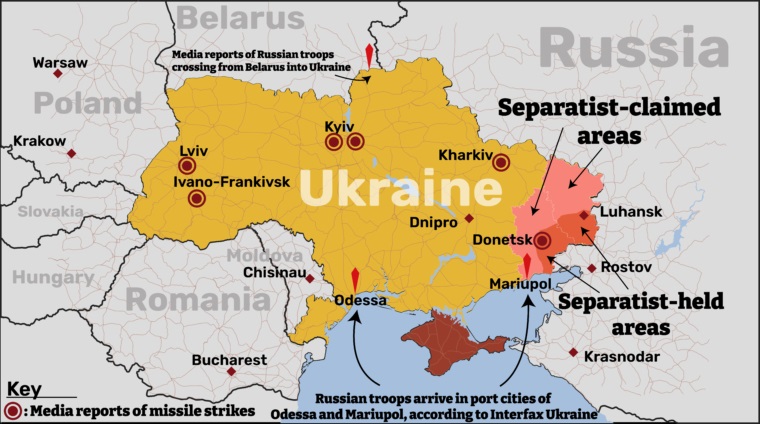900 319 0030
enquiry@shankarias.in
The Russian attack on Ukraine is now the largest attack by one state on another in Europe since the Second World War and the first since the Balkan conflict in the 1990s.

References